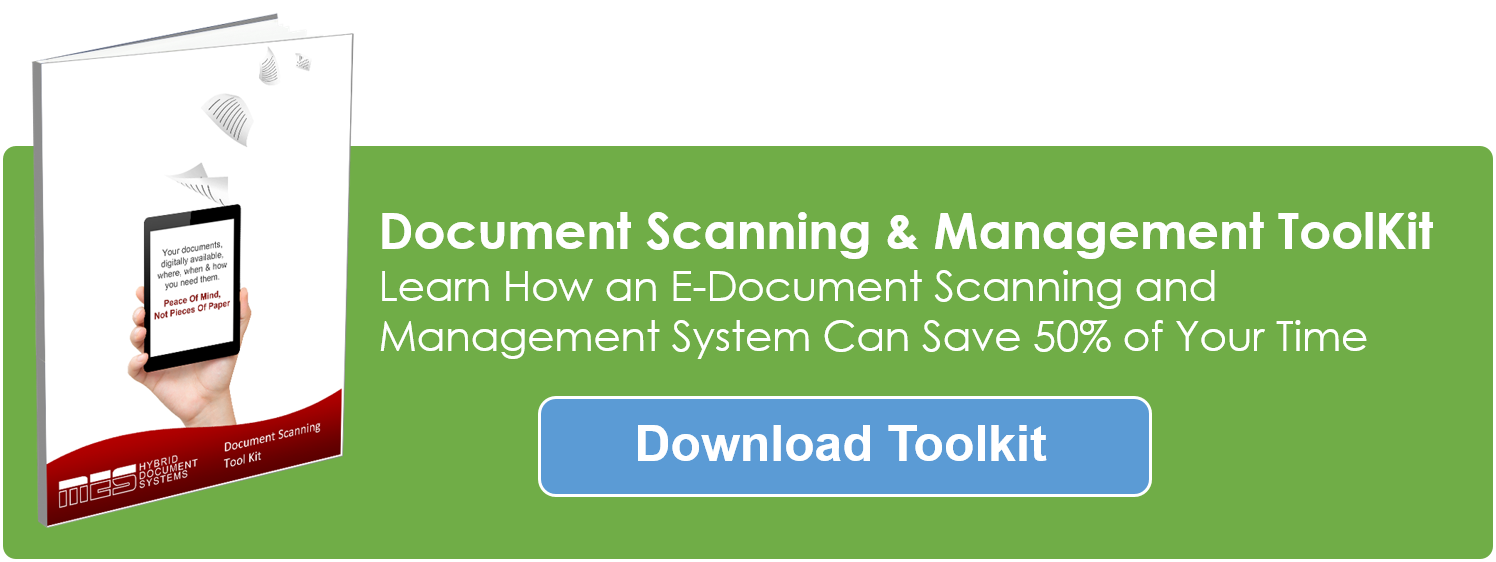Managing your records isn't as simple as placing them in a file folder. More documents have been created this millennium than all of human history combined. Your company has been a part of this massive influx of new data. In order to keep up with this, you must constantly work to enhance your records management. One of the best ways to do this is to find out what records management trends will be followed each year. Let's take a look at what is in store for 2016.
Are You Struggling With Physical Records Management?
Like most businesses, you create tens of thousands of documents each year. Although they are necessary, these documents will quickly pile up. With limited office space and the inability to destroy these documents, managing them all can be a struggle. When such a large pile of physical documents gets stacked up in your office, it can feel as though you're drowning in paperwork.
If your office is being overwhelmed by physical records, you can do something about it. Let's take a look at what steps you can take if you are struggling with physical records management.
Topics: Records Management, physical records management, paper records management
Keeping up with your members' needs is the most important function of your organization. With countless membership records to deal with for everything ranging from new member registration to new member accolades, you should always be seeking to find better ways to manage your records. Here is how you can start enhancing your membership record management capabilities right now:
Topics: Records Management, membership records
7 Things About Records Management Legislation Your Boss Wants to Know
Records management legislation is a critical factor to consider when determining what records management best practices your company should engage in. Managing your records the right way will require a team effort from your entire company, so everyone will need to know how to handle your records according to the law. That being said, your boss will want to know some very specific things about current records management legislation so that they can implement the right internal best practices. Here is what he or she needs to know:
Correctly managing your internal documentation is important, not just for your company's own records, but also for the government. Even if you have been engaging in proper records management practices under the law for decades, you won't be following the law if you do the same things this year that you have been doing for years. This is due to the fact that government legislation can cause governmental requirements to quickly change. Canada, specifically, has made some huge changes in its records management legislation in recent years. To make sure that your records management practices are on point for the near future, we are going to discuss seven ways that records management legislation is changing.
Topics: Records Management
Being able to effectively manage your records is one of the most important elements of running a business. Without properly managed records, you could not effectively keep track of anything, and your organization would be poorly run as a result. That being said, modern technology is significantly changing how we are able to manage our records; let's take a look some of the records management trends that you will see in 2015.
Any organization that has tried to improve an existing record management process, or create an entirely new one, has likely run into a number of issues. Many of these issues stem from a few common myths associated with business record management, and re-evaluating perspectives on record management could very well be the first step towards overcoming such problems. Here are four commonly-held misconceptions about records management that could be hindering improvement to your record management process.
Topics: Records Management, Electronic Records
3 Things About Electronic Records You May Not Have Known
In the digital age, analog records are quickly becoming obsolete. This doesn’t mean that paper records need to be completely eliminated, but rather that as remote workforces, digital communication and distribution, and a higher volume of data creation become the norm, analog formats are less and less practical. Put simply, electronic document management is the way of the future.
If you’re new to the inner workings of document management systems, it’s unlikely that you have a comprehensive understanding of electronic records, what they entail, and how they ultimately help improve business operations. To offer some insight into this, we’ve compiled a list of things you may not have known about electronic records.
Electronic Records exist in multiple formats
A common misunderstanding is that electronic records are simply paper documents that have been converted into digital files. While this is not untrue, it is an oversimplification. Electronic records do consist of converted paper files, but also include many, many other types of formats: microfilm, microfiche, images, cheques, non-standard documents, etc. Depending on the sophistication of the conversion equipment being used, almost any kind of document can be converted into electronic format, regardless of the source.
They are perfectly acceptable for legal compliance*
In Canada, businesses, trusts, and organizations are required to keep adequate records that provide enough details to determine tax obligations and entitlements for a period of six years. However, they do not have to be paper: electronic records are perfectly acceptable. In fact, because electronic document management is more efficient, particularly with a document management system, legal compliance and document retention becomes more accurate and easier to manage.
Electronic Records can be more effectively controlled
Physical records (namely paper) have a number of issues: cost, susceptibility to misplacement, limited indexing and classification ability, poor retrieval and search functionality, and general disorganization. If you choose to go with electronic records that are integrated within an electronic document management system, your organization will no longer face these problems. Every document is traceable, indexable, easily classified, and can even be included in automated workflows so that error-prone, time intensive manual processes are eliminated. This allows for the setting up of functions such as retention rules, security and access controls, DRM, seamless information sharing and collaboration, and more.
The above are a few aspects of electronic records that aren’t widely known, but nonetheless convey why electronic record management systems are becoming so popular for businesses of different sizes in different industries. The right solution can significantly improve records management processes, which can help both directly and indirectly improve other business areas.
*Note: The information provided in the MES blog is not legal advice as we are not lawyers. Please reference the Canadian Standard Document and your legal counsel to ensure that your electronic documents are legal.
Topics: Records Management, Electronic Records
Don't Forget to Consider the Soft Costs of Your Current Filing Systems
Are you questioning whether or not you can justify the transition from a paper based filing system to electronic document management solution? The real question should be “can you afford not to?” There are a lot of very expensive and unproductive soft costs associated with a paper filing system; so we ask you, is this really the best use of your staff’s time?
Employee Time Searching for Documents
A recent survey shows that employees spend 25% of their time just looking for information they need to do their job. On top of that, every week 42% of people use the wrong information to make decisions, requiring rework (read = more time, more money). An electronic filing system puts documents at the fingertips of every employee and manages version control, ensuring your staff are always working from the most current information.
Topics: Records Management, filing systems, document scanning, Document Management and ECM
Does the thought of archiving your records make you break out in a sweat? If your staff threatens a revolt whenever you suggest an office organization project, you need a way to make the process simple and headache-free.
Topics: Archive Writing, Records Management, Archiving Documents, Document Management and ECM











